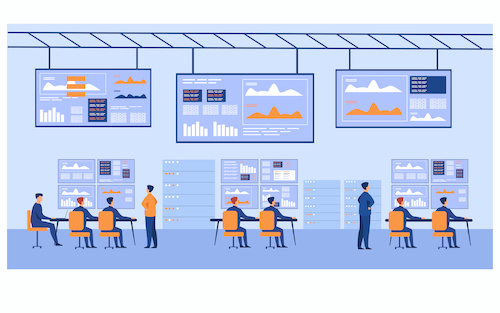Key points:
- Data centers need employees with specialized skills so they can hit the ground running
- 5 steps to boost CTE programs and fill workforce pipelines
- Concerns mount as high school graduates express career uncertainty
- For more news on career readiness, visit eSN’s Innovative Teaching hub
We often refer to the “silver tsunami” in the data center industry–a reference to the growing wave of older employees poised to retire and leave the workforce in the next five years or less.
It’s a real challenge, especially because the industry is already facing a shortage of skilled talent. According to research from Uptime Institute, by 2025, the global data center industry will need 2.3 million full-time staff. Many data center providers will be hard pressed to attract, hire, and retain all the employees their businesses require to maintain operations and support growth targets.
It might be a manageable situation if our industry were slowing down or even plateauing. Yet, the global data center industry continues to see extremely high demand for hosting, data storage, computing, and managed services, driven in part by AI. Consider also, hyperscale data center providers–companies like AWS, Microsoft, and Google–may attract more tech talent, making it even more difficult for other data center operators to recruit people with technical and mechanical skills to keep our systems up and running.
It all highlights a growing need for one specialized–but often overlooked–group of employees: skilled tradespeople.
Data centers’ demand for tradespeople
Why focus on the trades as opposed to those employees with more traditional credentials or backgrounds in the technology industry?
The first answer is that data centers tend to have a need for employees with experience in specialized skills, allowing them to hit the ground running. These include positions such as electricians, mechanics, heating and cooling technicians, construction workers, and more.
These employees can offer technical and mechanical skills and other experience to keep mission-critical data center systems up and running. It’s an important advantage in an industry hyper-focused on providing the highest levels of uptime for customers, to the point where many operators must meet “five-digit” service-level agreements (99.999 percent uptime). Often the right employees can make all the difference, whether it’s a technician spotting a potential server issue before it becomes a problem or a versatile mechanic who can quickly repair a diesel generator.
Ideally, high schools, vocational schools, and community colleges would have programs in place to introduce students to a potential career in the data center industry and even provide basic training to get them started down this path. The manufacturing sector has experienced success with similar initiatives, which has helped it overcome past misconceptions and recruit younger generations to fill its own staff shortages.
The data center industry could use a similar approach, especially when it comes to raising awareness related to employees’ earning potential. Many students may believe that they won’t earn as much as peers with four-year or even graduate-level degrees. This is not true. Today, a growing cohort of data center employees without college degrees now earn six-figure salaries complete with impressive benefits and enjoy job security that may not exist in other technology companies.
A growing focus on veterans
Many data center companies have experienced significant success by hiring military veterans for these types of roles. Veterans are often a great fit because they bring a wealth of specialized experience related to working with a wide range of technology, machinery, and specialized equipment. They also have a proven track record of working within groups where everyone puts aside his or her individual role to sacrifice and support the organization’s overall mission.
Veterans bring a unique type of discipline that most data centers need when it comes to following instructions or supporting rigid protocols. We also encourage them to share their opinions or recommendations for processes that could be managed in a different way. We have many examples where our military veteran employees have challenged the status quo and offered innovative new solutions to improve our business operations.
A new competitive edge
Finding the next generation of employees is a real challenge today and may seem insurmountable for many data center operators. By challenging past ways of thinking and embracing a new segment of workers–skilled tradespeople–many data centers can out-recruit the competition and gain a valuable new advantage.
- Teachers: It’s time to make friends with AI - December 13, 2024
- Where AI and multimodal learning will go in 2025 - December 13, 2024
- Addressing the teacher shortage: Six strategies for inspiring future educators - December 12, 2024

